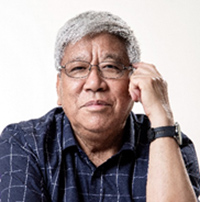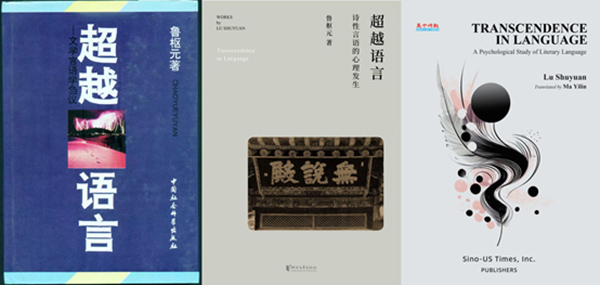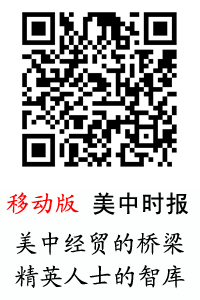美东时间2025年3月29日晚8时,美西时间3月29日下午5时,北京时间3月30日上午9时,来自美国和中国十几所知名高校的专家学者在线上齐聚一堂,共同参加由美国中美后现代发展研究院主办的过程哲学视域下的语言学研究暨鲁枢元教授语言学思想国际研讨会。黄河科技学院生态文化研究中心主任鲁枢元在发言中说,我写作《超越语言》的初衷是回望人类语言的源头、探求诗性语言在个体心灵深处的发生,从而矫正现代语言学中人性的流失、生命的干枯,希望对传统语言学起到纠偏与扩容的作用,我因此受到一些正统语言学家的批驳与责备。面对当下AI技术洪水般泛滥,我的初衷几乎就是一个预警。

以下是鲁枢元教授发言全文:
AI技术与语言的私自性
——请给人性留下一点空间
鲁枢元
1990年《超越语言》一书出版后,曾经举办过一场研讨会,参会的多是当时中国国内知名学者,会上一个引起激烈争论的话题就是:是否存在“语言的私自性”。35年过去,参会的学者中将近1/3已经去世,然而这个问题至今仍然悬而未决。
当下,英文版《超越语言》(Transcendence in Language)面世后重提这个问题,目的在于请教与会诸位专家:在AI技术强势的冲击下,人类语言是否还存在个体的、内在的、隐秘的私有领地?
AI技术(chatGPT; DeepSeek)在最近两年来的突飞猛进,是“机器”对人类语言搜集、学习、理解、模拟、运用的结果。“机器”凭借它的超高速运算能力,很快获得大规模的、远远超过人类个体对于语言的通用能力。
“语言”是什么?杰出的语言学家索绪尔(Ferdinand de Saussure,1857—1913)将语言的属性规定为人们相互间交流的工具,语言必须具有公共性、普适性,才能确保人与人之间的理解、共识、互通、互译。语言学研究的对象是语言的形式、结构、法则、模式、系统及其运用。
如今,语言学的这些属性与功能已经完全可以被人工智能取代。
海德格尔曾经说:“语言是人的存在之家”。那么,在AI时代,已经被机器盘踞的人类之家,人类自己还剩下什么?
仔细审视人类的语言现象不难看出:在人类的 “语言之家”里,不仅有概念、形式、结构、逻辑、法则、模式、数据、算法,还有言语者个人的体温与呼吸,个人的意志与偏好,个人的习惯与风格,个体情绪的精微变化,个人潜意识的流动,个体内在灵感的偶发。
这些个体言语活动中的“私自性存在”并非无足轻重,恰恰是人类创造性语言活动的源头。
索绪尔承认语言之家中的这些“私自性”的存在,但他不认为它们是“语言”,而称其为“言语”。他倒是说过:在“语言的语言学”之外应该有一门“言语的语言学”。遗憾的是“言语的语言学”至今没有出现。
索绪尔研究语言的思路属于静态的结构分析。如果将人类的语言活动视为一个整体的、有机的、流动的、不断创造变化的过程,那么还能够把语言的私自领域与语言的公共领域截然割裂、把人类的言语活动排除在语言学研究之外吗?
以“通用工具”为诉求的AI技术,至今仍然未能进入个体言语活动的“私自领域”。随着AI技术的快速发展,以后会怎样?我想,结果可能有两种:
一是终有一天,AI技术将成功攻克人类个体语言内在的私自性空间,全面占领“人类之家”。这无疑等于机器取代人类,等于地球上新增一个不是人类而又相当于人类的物种。这对于人类来说无疑是一场大劫难。好在,对于人工智能来说这几乎是一个难以跨越的关口。
更可能的结果是:方便、快捷、普适、通用、富有实效、拥有商机、便于操作与掌控的AI技术,在强权与资本的推动下,在各国政府的相互竞争中将迅猛发展。而人类个体内在的、私自的、情感的、道德的、审美的、信仰的、精神的存在或被排挤,或被冷落,或被遗忘,最终消失殆尽。“人类之家”里充斥的全是被金钱收买、被强权驯服、实用而又通用的语言,结局将是人失去了人性的温度,人类变成冷漠自私、“人形机心的怪物”。
我写作《超越语言》的初衷是回望人类语言的源头、探求诗性语言在个体心灵深处的发生,从而矫正现代语言学中人性的流失、生命的干枯,希望对传统语言学起到纠偏与扩容的作用,我因此受到一些正统语言学家的批驳与责备。面对当下AI技术洪水般泛滥,我的初衷几乎就是一个预警。
不久前,95岁高龄的美国著名语言学家乔姆斯基(Avram Noam Chomsky,1928- )公开对AI技术表示忧虑:人类的大脑是一个极为高效乃至优雅的系统,而当下最流行、最时兴、最受吹捧的“人工大脑”正在把一种有着根本缺陷的语言学概念与知识引进我们的生活领域,从而“拉低我们的科技水平、贬低我们的道德标准”。这些人工智能已经暴露出“道德的冷漠”与“平庸的邪恶”。这位百岁老人显然是在维护人性的尊严。我在《超越语言》一书中曾对他的普遍语法结构理论表示过质疑,这次我完全同意他的见解。
按照“语言”与“言语”的两分法,如果“语言”的极致是“公文”,“言语”的极致便是“诗”。怀特海在《思维方式》(MODES OF THOUGHT)一书中曾多次强调“哲学类似于诗”,“二者都力图表达我们名之曰文明的终极的良知,所涉及的都是形成字句的直接意义以外的东西”,是“隐于语词之后的生动的情感”。
在我看来,“字句外的东西”便是中国佛教禅宗里宣示的“教外别传”、是中国古代诗话中所推重的“言外之意”;而“隐藏在语词中的情感”,便是中国老百姓说的“人情味儿”,即“人性”。
很遗憾,我在撰写《超越语言》这本书时,还没有读过怀特海的书。这次英文版Transcendence in Language修订出版,我在书名中加了一个副标题:诗性言语的心理发生。诗性是语言学的灵魂,诗人是哲学家的伙伴,我以此表示我对伟大哲学家怀特海的皈依与致敬。
在这个工具理性再次覆盖人类思想领域的时刻,让我们共同努力:在AI的迷雾中守护本真的人性!
鲁枢元,人文学者,长期从事文艺学、心理学、语言学、生态学的跨学科研究;苏州大学退休教授。现为黄河科技学院特聘教授、博士导师、生态文化研究中心主任,河南大学讲座教授、生态文化研究所所长,山东大学文艺美学研究中心客座教授。系中国新时期文艺心理学学科重建的参与者,中国生态文艺学及精神生态研究领域的开拓者。曾任中国文艺理论学会副会长、中国作家协会理论批评委员会创会委员、联合国教科文组织“人与生物圈”计划中国委员会委员;现任中国“人与生物圈委员会”(MAB)专家咨询委员会委员。1988年被国家命名为“有突出贡献中青年专家”,先后荣获国家图书奖、鲁迅文学奖、“柯布共同福祉奖”(John Cobb Common Good Award)等奖项。

鲁枢元著:《超越语言》(初版),中国社会科学出版社1990年版
鲁枢元著:《超越语言》(修订版),浙江文艺出版社2023年版
Lu Shuyuan: TRANSCENDENCE INLANGUAGE
A Psychological Study of Literary Language
Sino-US Times, Inc.1924
AI Technologyand the Privacy of Language: Please Leavesome Room for Humanity
ShuYuan Lu
Abstract
As for Saussure, human language can be divided intolangue and speech (parole): Langue is a tool for public communication, withuniversality; Speech is the process of individual speech, with privacy.
In recent years, with the rapid advancement of AItechnology, the universality ability of machine language has far exceeded thatof human beings. Heidegger once said, language is the house of being, and inits house human dwells. However, the house will be arrogated by machines in twoways: AI technology, as a new species possibly equivalent to human beings, willsucceed in overcoming the intrinsic privacy of human language, and fully andcatastrophically arrogate the house of being; AI technology, driven by powerand capital, will crowd out the individual, internal, private, emotional,moral, aesthetic, and religious elements of human language activities, and thenthe house of being, will be filled with practical and universal language tamedby capital and power, and finally human beings become cold, selfish, humanoidmonsters with the hearts of machines. At last, the uncontrolled AI technologywill jeopardize the sound humanity and the existence of human beings. Defendingthe individuality and the privacy of language is also defending the truehumanity.
The ultimate of langue is the official document, andthe ultimate of speech is the poem.
Whitehead has repeatedly emphasized that philosophy isakin to poetry, and that both of them seek to express the ultimate good sensewhich we term civilization. In each case there is reference to form beyond thedirect meanings of words, and the vivid emotion hidden behind words. Thesereferences beyond the direct meaning and the emotion hidden behind words arethe existence of poetics and humanity.
Saussure’s linguistics is of the static analysis ofstructure. Human speech activity is a holistic, organic, flowing, andever-changing process. In the surging of AI technology, contemporary glottologyespecially should keep the guidance from Whitehead's philosophy.
Shortly after the publication of 超越语言 (the Chinese edition of Transcendence in Language),a seminar was held in 1992 in China, attended by many Chinese well-known scholars,in which “Is there the privacy of language?” aroused a heated debate. Untilnow, nearly one-third of the scholars attending the seminar have passed away,but this question is still pending. The purpose of revisiting this question isto ask today’s experts whether there is still an individual, internal, andprivate territory of human language under AI technology.
In the last two years, machines’ collecting, learning,understanding, simulating, and applying human language contribute to the rapidadvancement of AI technology (ChatGPT, DeepSeek, etc.). By virtue of thecomputing power with ultra-high speed, machines are quickly acquiring alarge-scale universality of language that has far exceeded that of humanbeings.
What is language? The outstanding linguist Ferdinandde Saussure (1857-1913) stipulated language as a tool for human to communicate,and that language must be public and universal in order to ensureunderstanding, consensus, interoperability, and mutual translation betweenhumans. The object of linguistic study is the form, structure, law, pattern,system of language and its practice.
Nowadays, these attributes and functions oflinguistics can be completely replaced by AI.
Heidegger once said, language is the house of being,and in its house human dwells. In the age of AI, whether there is humanity inthe house that has been arrogated by machines?
It is not difficult to scrutinize the phenomenon ofhuman language: In the house of human language, there are not only concept,form, structure, logic, law, pattern, data and algorithm, but also the speaker’spersonal body temperature and breath, will and preference, habit and style,subtle change in mood, the flow of subconsciousness, and the episodicoccurrence of intrinsic inspiration.
These privacies in individual speeches are notinsignificant but are precisely the source of creative language activities.
Saussure recognized the privacies in the house oflanguage, but did not consider them to be langue, but speech. He declares thatthere should be a linguistics of speech in addition to a linguistics of langue.Unfortunately, the linguistics of speech has not appeared so far.
Saussure’s linguistics is of the static analysis ofstructure. If human language activities are regarded as an integral, organic,flowing and constantly creating process, can the private and public spheres oflanguage be cut off from each other, and human language activities be excludedfrom linguistic research?
AI technology, which claims to be a universal tool,has not yet been able to enter the private sphere of individual speechactivities. Will it be possible in the future?
If yes, I think there are two ways.
The one is that AI technology, as a new speciespossibly equivalent to human beings, will succeed in overcoming the intrinsicprivacy of human language, and fully arrogate the house of being, which willundoubtedly bring about a catastrophe for the human race. The good news is thatthis is an almost insurmountable hurdle for AI.
The other but likely one is that AI technology, whichis convenient, fast, universal, generalized, effective, has businessopportunities, and is easy to operate and control, will grow rapidly, driven bypower and capital, and in competition with governments. The individual,private, emotional, moral, aesthetic, religious, and spiritual existence ofhuman beings will be marginalized, left out, forgotten, and eventuallydisappear. The house of being is filled with practical and universal languagethat is tamed by capital and power. In the end, human will lose the halo ofhumanity, and will turn into a cold, selfish, humanoid monster with the heartof machine.
My original intention of 超越语言is to look back to the starting point of humanlanguage and explore the occurrence of poetic language in the depths of theindividual’s mind, so as to rectify the loss of humanity and the drying up oflife in modern linguistics, in the hope of correcting and expanding traditionallinguistics, for which I have been rebuked and scolded by some orthodoxlinguists. In the flood of AI technology, my original intention can be almostseen as a warning.
Two years ago, the 95-year-old famous Americanlinguist Avram Noam Chomsky (1928- ) openly expressed his concern about AItechnology. He states, the human mind is a surprisingly efficient and evenelegant system, and the most popular and fashionable strain of AI (such asOpenAI, ChatGPT, etc.) “will degrade our science and debase our ethics byincorporating into our technology a fundamentally flawed conception of languageand knowledge,” which exhibits something like the banality of evil and themoral indifference. The almost centenarian is clearly defending thedignity of humanity. In the 超越语言, I expressed my doubts about his theory of universal grammaticalstructures, and this time I fully agree with his insights on AI.
According to the dichotomy of langue and speech(parole), the ultimate of langue is the official document, and the ultimate ofspeech is the poem. In his Modes of Thought, Whitehead has repeatedlyemphasized that philosophy is akin to poetry, and that both of them seek toexpress the ultimate good sense which we term civilization. In each case thereis reference to form beyond the direct meanings of words, and the vivid emotionhidden behind words. What lies beyond the words is what the Chinese BuddhistZen sect declares to be “the transmission of the Dharam outside of the writtenteaching” (教外别传), and what the ancient Chinese poets emphasize as “the meaning beyond thewords” (言外之意); The emotion hidden behind the words is what the Chinese people callhuman touch or humanity.
It is a pity that I had not read Whitehead’s bookbefore I wrote 超越语言. In this revised and reprinted edition, I have added a subtitle: APsychological Study of Literary Language (or A Psychogenesis of Poetic Speech).Poetics is the soul of linguistics, and poets are the companions ofphilosophers, andin this way I express my conversion and homage to thegreat philosopher Whitehead.
Prof. Wang Zhihe, the moderator, hoped that I couldsummarize this seminar in my final speech, and I really find it difficult totake up this hard responsibility. I have to admit that I have learned andgained so much from you, and once again, I express my sincere thanks to youall! Thank you, thank you!
相关链接:
鲁枢元语言学国际研讨会01:过程哲学视域下的语言学研究暨鲁枢元教授语言学思想国际研讨会成功举办
鲁枢元语言学国际研讨会02:让诗性语言照亮充满生机的地球
鲁枢元语言学国际研讨会03:一部极具现实意义的旧作
鲁枢元语言学国际研讨会04:全息的、生态的、宇宙论的语言学贡献
鲁枢元语言学国际研讨会05:语言与生生不息的地球
鲁枢元语言学国际研讨会06:《超越语言》富有十足的创新力和前瞻性
鲁枢元语言学国际研讨会07:AI生成語言視閾下回視魯樞元的《超越語言》
鲁枢元语言学国际研讨会08:语言的心理维度与生态维度
鲁枢元语言学国际研讨会09:从结构主义到生态主义
鲁枢元语言学国际研讨会10:运用语言最终是为了超越语言
鲁枢元语言学国际研讨会11:《超越语言》的学术贡献
鲁枢元语言学国际研讨会12:《超越语言》的学术贡献
鲁枢元语言学国际研讨会13:鲁枢元教授生态政治中的三元语言
鲁枢元语言学国际研讨会14:请给人性留下一点空间




